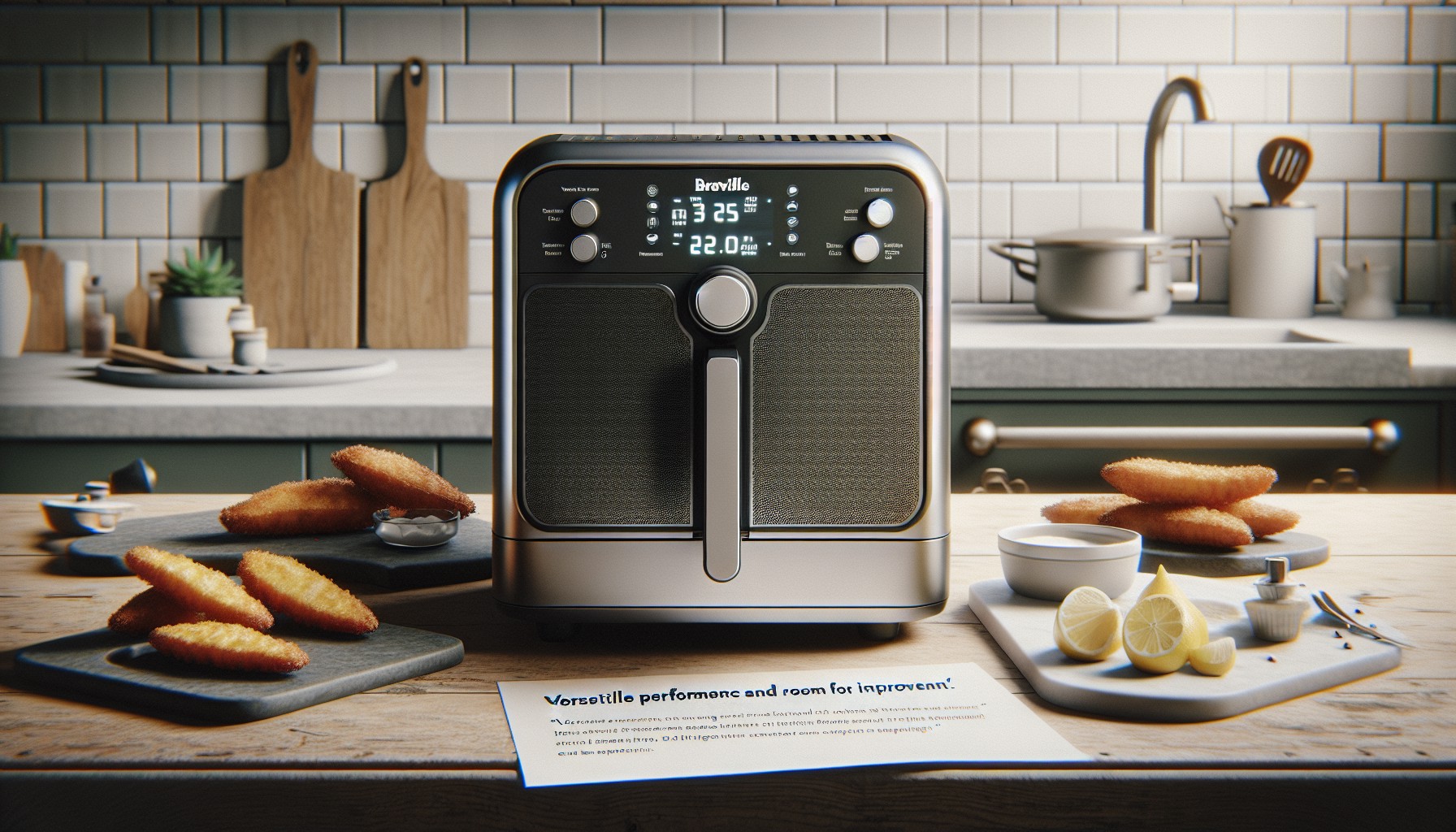The Breville Smart Oven Air Fryer Compact has emerged as a popular choice among kitchen appliances for those seeking an efficient and versatile cooking experience. As technology continues to integrate artificial intelligence into everyday tools, we find ourselves in a world where even our kitchen appliances are influenced by AI-driven design and functionality. The question is: does the Breville Smart Oven Air Fryer Compact truly embody the potential of AI, or does it have room for improvement?
The Breville Smart Oven Air Fryer Compact is a testament to how technology has revolutionized cooking. Equipped with Element iQ System, it intelligently steers power to where and when it is needed to create the ideal cooking environment. This approach echoes the principles of AI, where systems learn and adapt to optimize outcomes. However, while the oven’s adaptability is impressive, it lacks the deeper learning capabilities seen in more sophisticated AI systems. There is potential for a future iteration that could utilize machine learning to recognize cooking patterns and preferences for even more personalized results.
One area where AI could significantly enhance the Breville Smart Oven is in its user interface. The current model is praised for its simplicity and ease of use, but it stops short of leveraging AI to provide a more interactive experience. Imagine an oven that could suggest recipes based on your dietary preferences or adjust cooking times by analyzing the moisture content of your ingredients. Such features would require an AI that not only processes data but also understands the nuances of culinary arts.
Moreover, the integration of AI could streamline maintenance and troubleshooting. The Breville Smart Oven currently relies on traditional user manuals and basic error codes, but an AI-driven system could diagnose problems and offer real-time solutions. This could include sending alerts to your smartphone, providing step-by-step repair instructions, or even contacting customer support on your behalf. This kind of predictive maintenance, powered by AI, could greatly enhance the user experience by minimizing downtime and ensuring optimal performance.
The compact size of the Breville Smart Oven is one of its selling points, appealing to those with limited counter space. However, this presents a challenge when it comes to incorporating AI hardware. The balance between maintaining a compact design and integrating AI technology is delicate but not insurmountable. As AI technology becomes more miniaturized and efficient, future models could incorporate advanced AI systems without compromising on size.
From an energy efficiency perspective, the Breville Smart Oven could benefit from AI-driven enhancements. Currently, it uses pre-set programs to regulate energy consumption, but AI could take this a step further by learning from past usage patterns to optimize energy efficiency. This would not only reduce electricity bills but also contribute to a more sustainable kitchen environment.
Despite its current limitations, the Breville Smart Oven Air Fryer Compact offers a glimpse into the potential of smart kitchen appliances. It serves as a reminder that even as technology advances, there is always room for improvement and innovation. By embracing AI, future iterations of the oven could become more intuitive, efficient, and personalized, truly revolutionizing the way we cook.
In conclusion, the Breville Smart Oven Air Fryer Compact is a capable and versatile appliance that stands to benefit greatly from AI integration. As we look to the future, the convergence of AI and kitchen technology promises to enrich our culinary experiences, making cooking not only smarter but also more aligned with our individual needs and lifestyles. As of today, April 13, 2025, we can anticipate that the next wave of smart ovens will continue to push the boundaries of what is possible, transforming our kitchens into hubs of intelligent innovation.
